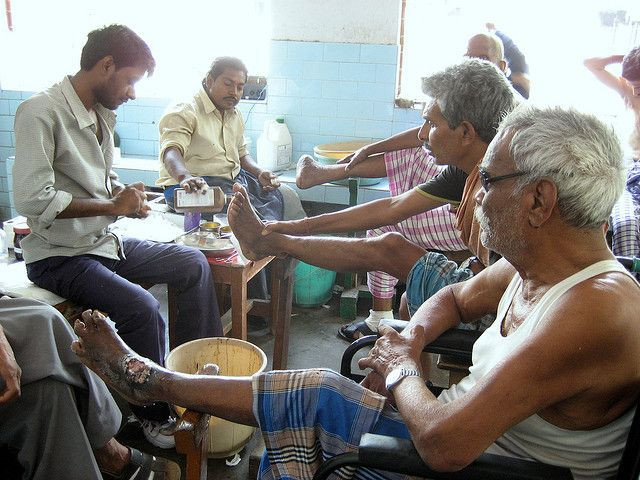Laws Deny Leprosy Sufferers Right To Work, Travel, Marry: Study

LONDON (Thomson Reuters Foundation) - Leprosy sufferers worldwide face discriminatory laws affecting their right to work, travel and marry, according to an advocacy group which called upon governments to follow U.N. guidelines and abolish such legislation.
Around 20 countries, including India, Thailand and Nepal, have or continue to pass laws that discriminate against people with leprosy, the International Federation of Anti-Leprosy Associations (ILEP) said ahead of World Leprosy Day on Sunday.
There were more than 200,000 new leprosy cases reported worldwide in 2013, yet this number has shrunk by 20 percent since 2006, according to the World Health Organization (WHO).
The U.N adopted a resolution in 2010, urging governments to abolish all discriminatory laws against people affected by leprosy and their family, ILEP said.
"Some countries have repealed their laws and started public education campaigns to stop stigma against men, women and children affected by leprosy... we applaud those which have taken such action," ILEP President Jan Van Berkel said in a statement.
Millions of people and their families still suffer from the stigma associated with the disease, which is perpetuated by outdated laws and regulations, ILEP said.
India has at least 15 laws discriminating against those with leprosy, prohibiting them from standing for election or hold a driver's license, according to the anti-leprosy federation. People can also be forcibly removed from residential areas and segregated from society even if they have been cured.

The Philippines and Namibia can refuse entry visas to people with the disease, and people from Pakistan living in the Gulf states face immediate repatriation if diagnosed with leprosy. Dainius Pūras, U.N. special rapporteur on the right to health, urged all governments to give consideration to the U.N. resolution and follow in the footsteps of Greece, China, Ethiopia, Oman, Ukraine, Estonia and Ecuador in repealing discriminatory laws, ILEP said.
Leprosy is a chronic infectious disease causing disfiguring skin ulcers and nerve damage in the arms and legs. In the past leprosy, also known as Hansen's disease, was regarded as incurable, and patients often became social outcasts, but it can now be treated with antibiotics.
(Reporting By Kieran Guilbert; Editing by Astrid Zweynert)
Published by Medicaldaily.com



























